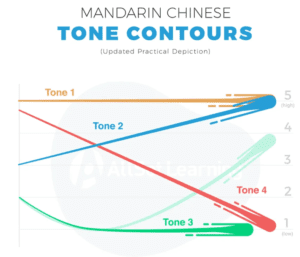How to improve your Chinese pronunciation:
Why is Chinese Pronunciation So Important?
Chinese is a tonal language, which means the meaning of a word can change entirely depending on the tone used. For example, the syllable “ma” can mean “mother,” “horse,” “hemp,” or even “to scold,” based on its tone. Mispronouncing these tones can lead to misunderstandings and awkward situations. Therefore, having good pronunciation is not just about sounding accurate—it’s essential for effective communication.
Common Challenges in Learning Chinese Pronunciation
- Tonal Complexity: Mandarin has four main tones and a neutral tone. These tones can be difficult for non-native speakers to distinguish and reproduce accurately.
- Pinyin Mastery: Pinyin is the Romanization system used to transcribe Chinese sounds. Although it might look familiar to English speakers, the pronunciation rules are different. Misunderstanding these rules can lead to incorrect pronunciation.
- Lack of Practice: Many learners focus on reading and writing, neglecting speaking practice. Without regular speaking and listening exercises, pronunciation improvements are limited.
Practical Solutions to Improve Your Chinese Pronunciation
1. Master Pinyin First
Pinyin is the foundation of Chinese pronunciation. It not only helps you pronounce words correctly but is also essential for looking up words and typing in Chinese. Spend time familiarizing yourself with each initial and final, and practice pronouncing them with native audio guides.
Tip: Use apps like “Pleco” or “HelloChinese” to practice Pinyin with real-time feedback.
2, Pay attention to the tones.
Understanding and correctly pronouncing tones is crucial. Practice each tone in isolation and then in combination with other syllables. Recording yourself can be an effective way to identify and correct mistakes.
Exercise: Choose a list of commonly used words and practice them with their correct tones daily. Gradually increase the difficulty by adding more complex sentences.
3, Read the text aloud.
Reading aloud helps reinforce correct pronunciation. When practicing, exaggerate the tones slightly to train your muscle memory and improve tonal accuracy.
Activity: Pick simple texts, such as children’s books or beginner-level materials, and read them aloud. Focus on clarity and correct tone.
4, Find a Chinese language partner.
Having a language partner can significantly boost your speaking and listening skills. Engage in regular conversations with a native speaker or join a language exchange community.
Resource: Use platforms like “Tandem” or “Italki” to connect with native Chinese speakers for language exchange.
5, Listen to Chinese media.
Listening to Chinese media exposes you to natural speech patterns, tones, and pronunciation. Try listening to podcasts, watching Chinese dramas, or following Chinese vlogs.
Recommendation: Start with materials that match your language level. If you’re a beginner, choose simple, slow-paced content, like children’s shows or beginner podcasts.
Conclusion
Improving your Chinese pronunciation is a journey that requires consistent practice and the right strategies. By mastering Pinyin, focusing on tones, reading aloud, engaging with native speakers, and immersing yourself in Chinese media, you’ll gradually develop more accurate pronunciation and greater confidence in speaking Mandarin.
Remember, the key to success is regular practice and a positive mindset. With dedication, you can overcome the challenges and speak Chinese with clarity and confidence. Happy learning!




